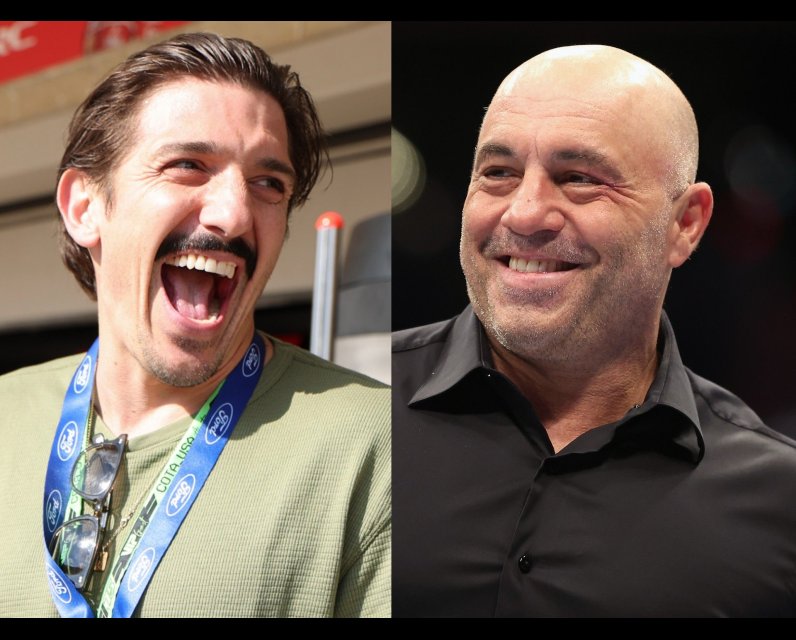Joe Rogan, comedian Andrew Schulz puzzled by Canada’s land acknowledgements: ‘Feels like I’m bragging’

Canada’s practice of Indigenous land acknowledgements, viewed by many as a pivotal component of reconciliation, is not without its critics, including some Indigenous leaders and scholars who see them as a performative token gesture.
Joining that group are podcasters and comedians Joe Rogan and Andrew Schulz, who briefly discussed the declarations now routinely made at public and private events held by government, schools and increasingly in the business sector.
Such was the case for Schulz, who broached the subject on the Oct. 18 episode of the Joe Rogan Experience during a wider conversation about an alleged Columbus Day message made by former U.S. vice-president Kamala Harris. Rogan claimed she urged people not to “forget the horrors the Europeans” committed in colonizing North America.
Schulz said he finds it amusing when governments “enforce care” and noted he’s been asked to do land acknowledgements while performing standup comedy in Canada.
Surprised when first asked, he said he had to clarify with an Indigenous person.
“I remember telling it to the chief of the tribe, I’m like, ‘Brother, that kind of seems like I’m bragging,” Schulz said with just two minutes remaining in the three-hour, 35-minute show.
“I’m going up there and be like, ‘Yo, this used to be yours, but the boys came in, got y’all the f— out of here.” You really want me to go and remind everybody what happened before the comedy show?”
Rogan chimed in then, suggesting that those offering the land acknowledgement are also saying, “We’re not giving it back. We stole it, but it’s ours now.”
“Who are we doing this for,” asked incredulously before the host changed the topic.
Land acknowledgements became more common in the late 2000s and into the 2010s as the Truth and Reconciliation Commission (TRC) efforts started to normalize public admission of colonial dispossession. They’ve become almost ubiquitous since the TRC’s Calls to Action were embraced by the federal government in 2015 — although they are not specifically mentioned among the 94 items — and the endorsement of the UN Declaration on the Rights of Indigenous Peoples (UNDRIP) in 2016, which Canada passed into law in 2021.
The goal is to recognize Indigenous peoples as the original caretakers of Canada, confirm their sovereignty and remind “settler” Canadians of their responsibilities under existing treaties.
Tobique First Nation member Devon Saulis told CBC in 2021 that she found them “performative” and said, “Actions speak louder than words.”
“Are they ready to give us back our land? There has to be absolute action behind it,” asked Quebec Algonquin elder Claudetta Commanda, in the same story.
More recently, upon King Charles III reciting a land acknowledgement at the start of his much heralded speech from the throne to open Canada’s parliament in May, Karen Restoule, a senior fellow and director of indigenous affairs at the Macdonald-Laurier Institute, noted the irony of the monarch using the words “unceded territory.”
“The King isn’t just a symbolic figure of the Crown — like our Governor General — he is the Crown,” Restoule, an Ojibwe the Dokis First Nation in Ontario, wrote for The Hub.
Like Commanda and Saulis, she said the acknowledgement “rings hollow with the lack of action to back the words.”
Meanwhile, a poll conducted by Leger Marketing for the Association for Canadian Studies earlier this year found that 52 per cent said they don’t live on stolen Indigenous land, while 27 per cent feel otherwise. The remaining 21 per cent told the pollster they didn’t know or declined to answer.
“The findings also raise important questions about the impact of public land acknowledgments, particularly when they are made without genuine understanding or conviction,” ACS president Jack Jedwab told National Post at the time.
“The survey results suggest that requiring Canadians to publicly acknowledge they live on stolen Indigenous lands would imply that the majority does so without conviction.”
Our website is the place for the latest breaking news, exclusive scoops, longreads and provocative commentary. Please bookmark nationalpost.com and sign up for our daily newsletter, Posted, here.


Comments
Be the first to comment